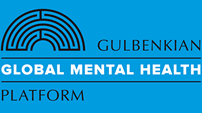Mental healthcare under-resourced in too many countries, says OECD

Making Mental Health Count says that the social and economic costs of mental ill-health are high and rising.
People with a severe mental disorder die up to 20 years earlier than the general population, as well as being six to seven times more likely to be unemployed.
One in two people are estimated to experience mental ill-health at some point in their life, affecting their job prospects, wages and productivity. The direct and indirect costs of mental ill-health can exceed 4% of GDP in many OECD countries.
Mental ill-health is undertreated in all countries, according to the report. Between one-third and one-half of people with disorders do not receive treatment.
A lack of reliable data is part of the problem: few countries can accurately measure the resources they invest in mental health care, making it difficult to quantify the cost and allocate scarce resources. Countries struggle to understand how well mental health services are meeting needs, and whether they are delivering good outcomes.
Having detailed and up to date information is essential in order to understand the prevalence of mental ill-health, its costs, and to track treatment outcomes and care quality.
Mild-to-moderate mental disorders such as depression and anxiety are highly prevalent – 15% of the working-age population is affected at any given time. They are also widely undertreated; globally 56.3% of people with depression do not receive appropriate treatment. These disorders contribute significantly to reduced productivity, sickness absences, disability and unemployment in OECD countries.
Investing more in primary care would be one cost-effective way of treating mild-to-moderate mental disorders. In most OECD countries, primary care practitioners are already expected to diagnose, treat and manage these types of disorders but in many cases lack the resources, time and expertise to do so effectively.
Additional support for primary care should include:· Mental health training and ongoing professional development for all primary care physicians and nurses;
· Better support from mental health specialists for primary care providers;
· Improved access for primary care practitioners to specialist services for patient referral.
Primary care systems cannot meet the need for treatment for mild-to-moderate disorders alone. Psychological therapies such as Cognitive Behavioural Therapy (CBT) have been shown to be effective, and can represent good value-for-money, especially when potential employment, productivity and social benefits savings are included.
